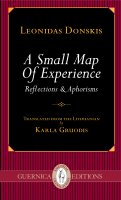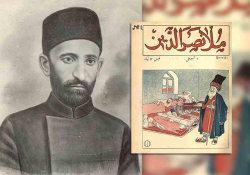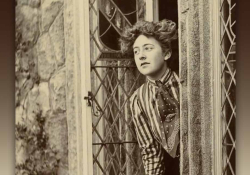A Small Map of Experience: Reflections and Aphorisms
 An aphorism is a distilled, laconic reflection about the author’s intimate experiences of reality, expressed through paradox, provocation, or shocking self-disclosure. Aphorisms cannot be conceived theoretically, and one cannot learn how to write them from a manual. They rise up out of authentic experience—from silence and pauses, from stopping oneself so that a thought is not drowned by the flood of words and pretentious expressions. A person who speaks too much is unlikely to succeed in writing aphorisms or maxims. When writing about things that one has experienced and grasped directly, rather than learned from some theoretical or academic lesson, economy of thought and language are key. . . . An aphorism is also a space for dialogue: it is an open and unfinished thought, which always requires that we, as readers, go back and attempt to develop the ellipses and silences which the author has left for us like an invitation. – from the foreword to A Small Map of Experience: Reflections and Aphorisms, forthcoming from Guernica in April 2013.
An aphorism is a distilled, laconic reflection about the author’s intimate experiences of reality, expressed through paradox, provocation, or shocking self-disclosure. Aphorisms cannot be conceived theoretically, and one cannot learn how to write them from a manual. They rise up out of authentic experience—from silence and pauses, from stopping oneself so that a thought is not drowned by the flood of words and pretentious expressions. A person who speaks too much is unlikely to succeed in writing aphorisms or maxims. When writing about things that one has experienced and grasped directly, rather than learned from some theoretical or academic lesson, economy of thought and language are key. . . . An aphorism is also a space for dialogue: it is an open and unfinished thought, which always requires that we, as readers, go back and attempt to develop the ellipses and silences which the author has left for us like an invitation. – from the foreword to A Small Map of Experience: Reflections and Aphorisms, forthcoming from Guernica in April 2013.
1
An aphorism is that which remains after a painful battle with the excesses of one’s own language and experience.
33
Public space is nothing but the translation of influential people’s private lives into public concerns.
36
Life is like playing the piano: we only draw out its deepest, most authentic sounds when our time on Earth is coming to an end.
61
Rembrandt and Shakespeare are geniuses of the same order. They painted the story of the human soul in every shade—from wretchedness to greatness.
66
Why do we tend to be so intimate and sensitive when bidding each other goodnight? Is it because sleep is a bit like death—a way of preparing, every night, to eventually meet it? Is this not why we are always happy to find, on waking, that we have not yet been swallowed by nothingness? This experience is described perfectly by Sancho Panza, who ends his monologue on the blessedness of sleep by telling Don Quixote that only one thing diminishes the joy of sleep, briefly making us equals: it reminds us of death.
Translation from the Lithuanian
By Karla Gruodis
Editorial note: Republished by permission of the publisher.
Karla Gruodis is a translator, journalist, and Professor of English at Dawson College in Montreal. After completing her undergraduate studies in Canada, she lived in Lithuania from 1989 to 1999, where she participated in the country’s independence movement and witnessed the dramatic changes her parents’ country of birth underwent during that decade. She returned to Canada to complete graduate studies at the University of Toronto (MA English 2004, M Ed 2006). She has extensive experience translating Lithuanian academic and journalistic writing into English, and maintains strong professional and personal ties with Lithuania.















